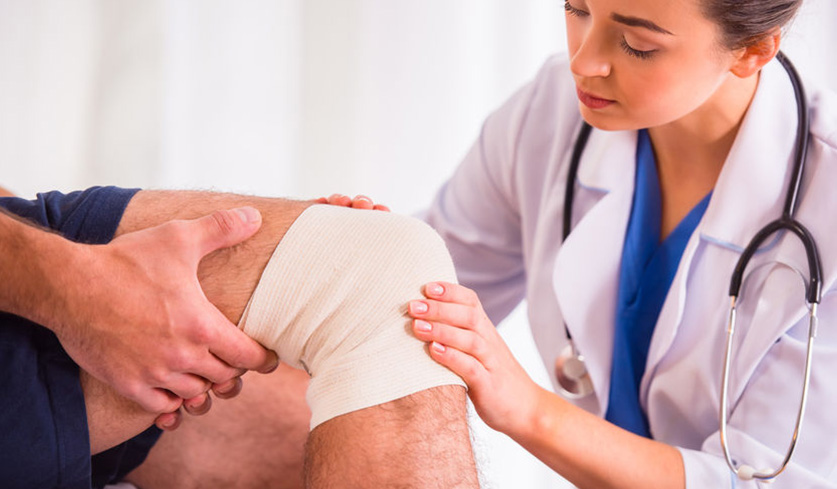
On-Demand
Orthopedics CME
Purchase Now!
$297
Advance your knowledge of Orthopedics on everything from concussion management to spine assessment. This CME course covers new updates and best practices in Orthopedics.
Orthopedics 2024

CME Courses by Laurel Short, DNP, FNP-C
Mastering Your MSK Exam
Musculoskeletal (MSK) problems are in the top reasons for primary care visits. Over half of chronic medical conditions in the United States are related to MSK diagnoses. These conditions are a leading cause of disability, resulting in both individual and societal burden. Achieving confidence with your head-to-toe musculoskeletal exam is the first step in diagnosing and managing MSK issues. This interactive session will provide a solid foundation for optimizing orthopedic care in the primary care setting. Emphasis will be placed on practical options for multimodal pain management in your busy practice setting.
Key Strategies for Pharmacologic Migraine Management (Rx=0.50)
Did you know migraine is one of the top 10 causes of disability worldwide? It is often the disability from migraine attacks that compromises quality of life, this condition both a pain problem and a life problem. This presentation will use a case-based approach to illustrate how clinicians can best utilize the current pharmacologic options for acute and preventive migraine treatment. Attendees will gain confidence with the current diagnostic criteria for episodic and chronic migraine understand mechanisms of action for newer migraine-specific CGRP antagonist medications.
Relative Energy Deficiency in Sport
RED-S refers to Relative Energy Deficiency in Sport, and despite the term being developed nearly a decade ago there is significant unawareness of the condition among providers. Previously called the Female Athlete Triad, it is characterized by low energy availability due to a calorie deficit. The condition was developed in 2014 by the International Olympic Committee and can affect both males and females, including elite and recreational athletes. It can lead to irreversible damage, impairing almost every system in the body if left untreated. RED-S often goes unrecognized until drastic injury or mental collapse occurs. This session will review the definition, how to recognize early signs and symptoms, and multimodal treatment strategies to keep athletes of all ages healthy and nourished.
The Three Common Mistakes in Spine Assessment
Is it a shoulder issue or neck problem? It is pain related to the lumbar spine or hip? These are common challenging scenarios for the primary care provider. There are many etiologies for neck and back pain, and often symptoms resolve with conservative measures. This session will focus on history and exam findings that allow for accurate diagnosis of neck and low back pain. Teaching approaches include exam demonstration, when to consider diagnostic testing, and comprehensive treatment plans. Discussion will include use of both pharmacologic and non-pharmacologic modalities.

CME Courses by Gerald Weniger, PhD, ATC, PA-C
Knock Their Socks Off: Foot & Ankle Pathologies You May Be Missing
Most clinicians are likely familiar with the evaluation and treatment of common conditions like planter fasciitis, lateral ankle sprains, and Achilles tendinitis. But what about more obscure foot and ankle pathologies? This presentation will review less common musculoskeletal conditions of the foot and ankle such as Morton’s neuroma, Lisfranc injuries, Achilles tendon rupture, and syndesmosis (high ankle) sprains. Often neglected principles for treating inflammation will also be covered.
All Hands on Deck: Atypical Hand, Wrist, & Finger Injuries
Most clinicians are familiar with the evaluation and treatment of common hand and wrist conditions like carpal tunnel syndrome, wrist sprains, and trigger finger. But what about more obscure pathologies? This presentation will review less common musculoskeletal conditions of the hand and wrist such as Keinbock’s disease, mallet finger, jersey finger, skier’s thumb, UCL tears, and more.
A Shoulder to Lean On: Simplifying Evaluation of Common Shoulder Problems
Many clinicians are comfortable with evaluation of musculoskeletal conditions of the hand, wrist, foot, or ankle. But for some reason, evaluation of shoulder pain is often more daunting. SLAP tears? Hawkins-Kennedy test? Bankart tears? O’Brien’s test? This presentation will help you make sense of all the orthopedic acronyms and eponyms so that you can more confidently evaluate a patient with shoulder pain. Useful special tests will be explained and demonstrated.
Everything You ‘Kneed” to Know: Making Physical Exam of the Knee More Clear
Evaluation of the knee has changed and evolved over the years. Do you perform a Lachman’s test or anterior drawer? Is McMurray’s test still clinically useful? What is a Thessaly test? This presentation will discuss these special tests and more, while making sense of a musculoskeletal exam of the knee. Special attention will be directed towards acute and degenerative meniscus tears, and when referral to orthopedics is prudent.
Not the Standard of Care: ED Case Studies in Medical Malpractice (Rx=0.25)
Medical malpractice is any act by a clinician during treatment of a patient that deviates from accepted norms of medical practice and causes injury to the patient. This presentation will review several real-life case study scenarios in orthopedics and emergency medicine. Compartment syndrome? Pulmonary embolus? Oh my! Avoid future pitfalls and potential malpractice claims by learning valuable lessons from prior mistakes.